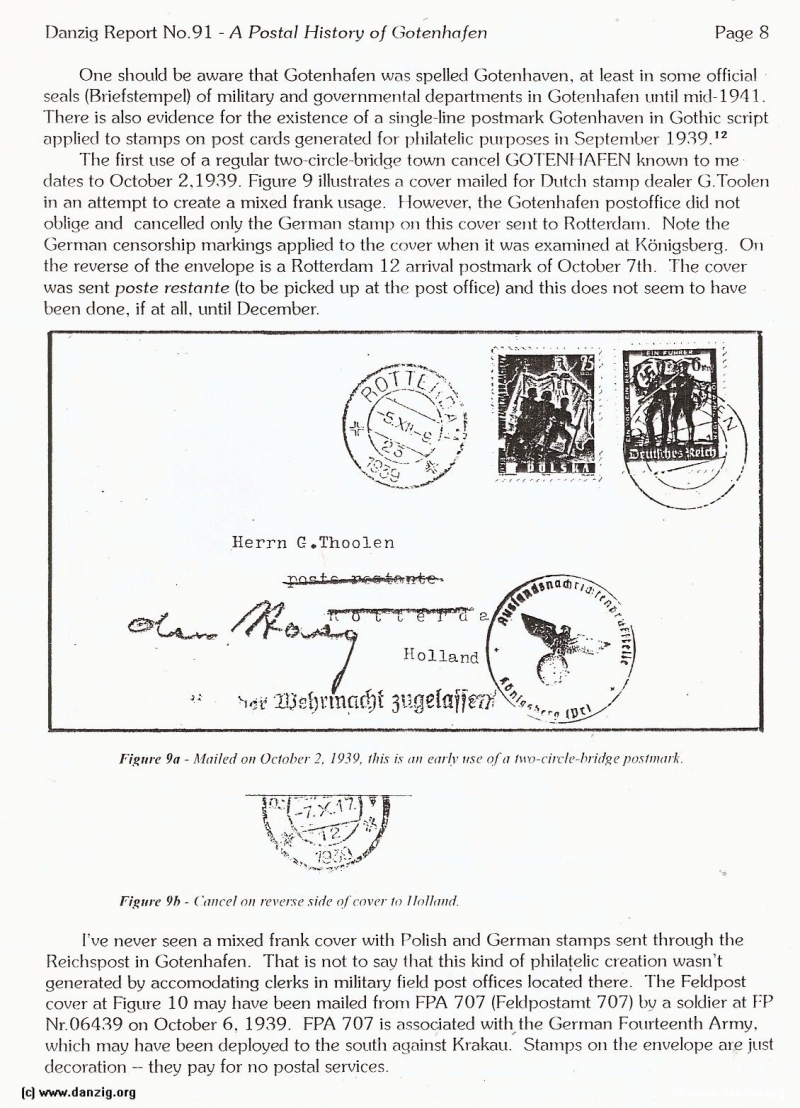
One should be aware that Gotenhafen was spelled Gotenhaven, at least in some official seals (Briefstempel) of military and governmental departments in Gotenhafen until mkl-194 1. There is also evidence for the existence of a single-line postmark Gotenhaven in Gothic script applied to stamps on post cards generated for pitilatelic purposes in September 1939.
The first use of a reqular two-circle-bridqe town cancel GOTENI JAFEN known to me dates to October 2,1939. Figure 9 illustrates a cover nmiled for Dutch stanhl, (lealer G.Toolcn in an attempt to create a mixed frank usage. 1-lowever. the Gotenhafen postoffice did not oblige and cancelled only the German stamp on this cover sent to Rotterdam. Note the German censorship markings applied to the cover when it was exanlnle(1 atKonigsberg. On the reverse of the envelope is a Rotterdam 12 arrival postmark of October 7th. The cover was sent poste restante (to be picked up at the post office) and this does not seem to have been (lone, if at all, until December.
I’ve never seen a mixed frank cover with Polish and German stamps sent through the Reichspost in Gotenhafen. That is not to say that this kind of philatelic creation wasn’t generated by accomodating clerks in military field post offices located there. The Fekipost cover at Figure 10 may have been mailed from FPA 707 (Feldpostamt 707) by a soldier at PP Nr.06439 on October 6. 1939. FPA 707 is associated with the German Fourteenth Army. which may have been deployed to the south against Krakau. Stamps on the envelope ate lust decoration -- they pay for no postal services.
Danzig Report Vol. 1 - Nr. 91 - April - May - June - 1996, Page 8.
Hits: 3576
Added: 13/07/2015
Copyright: 2025 Danzig.org

